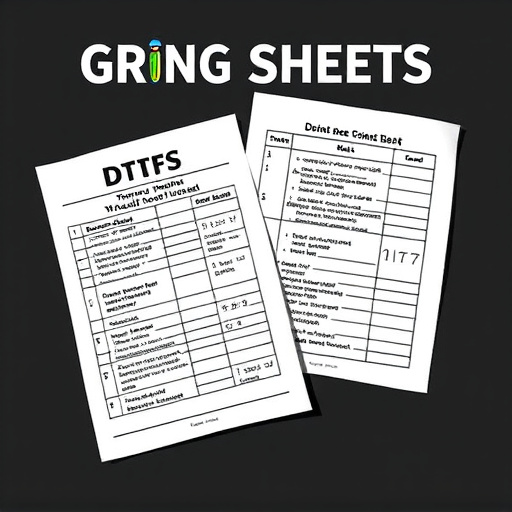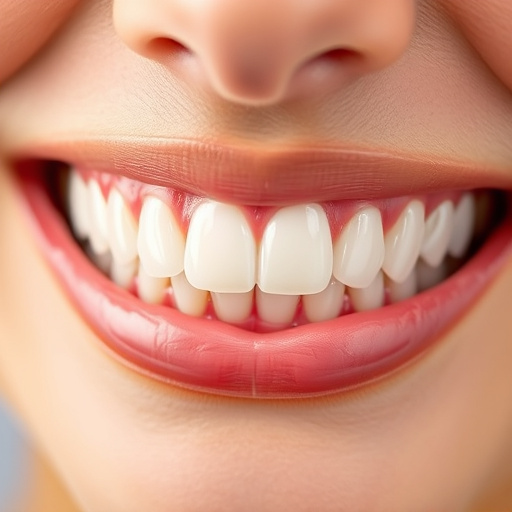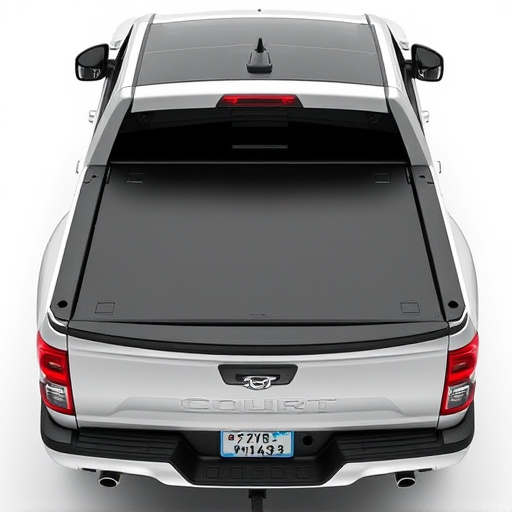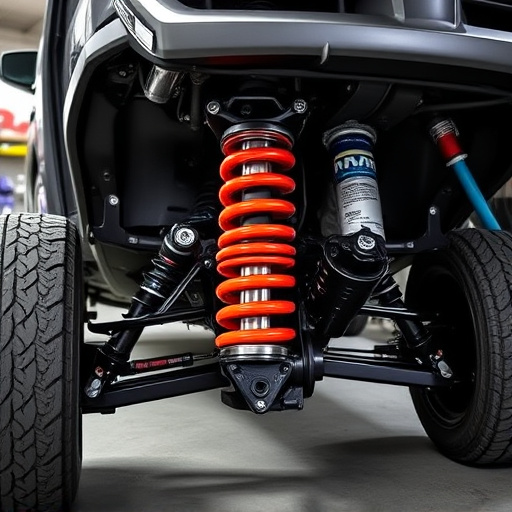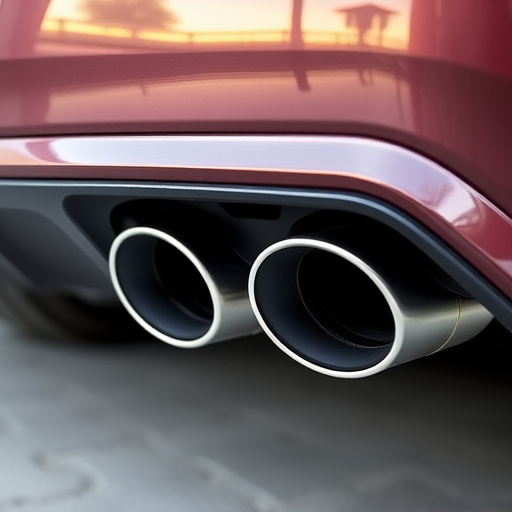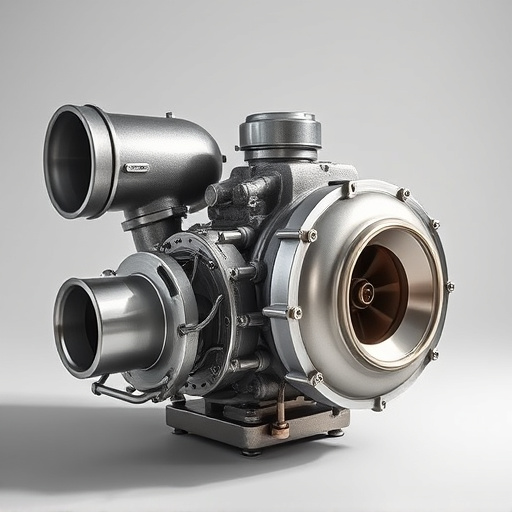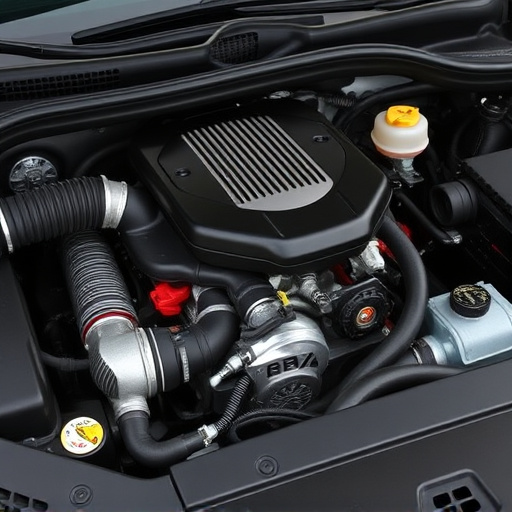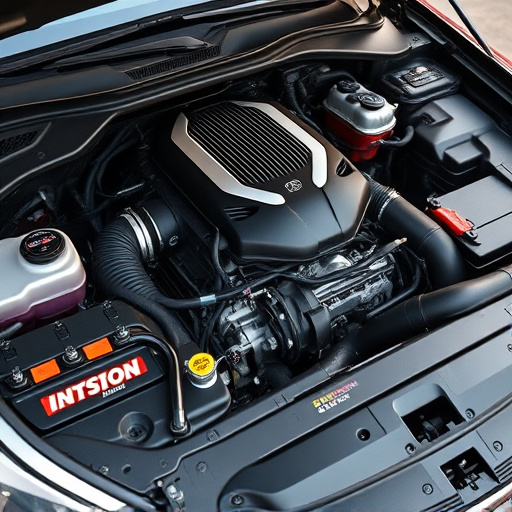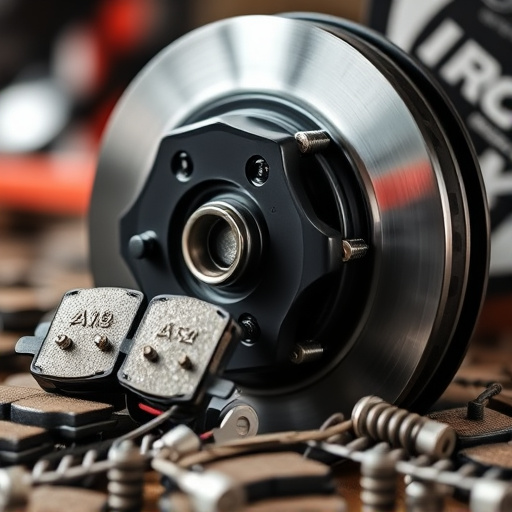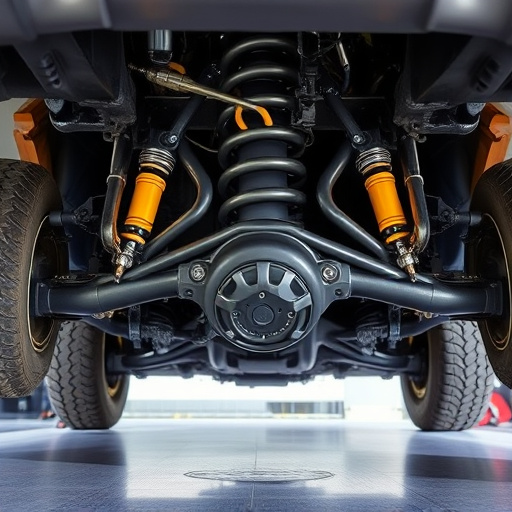Noise from brake caliper covers can be caused by worn suspension parts, damaged brake components, improper installations, and environmental factors. To isolate the source, conduct a visual inspection, check fluid levels, listen for noises, use diagnostics, test calipers, and examine intake/exhaust systems. Replace worn pins, install high-quality covers, maintain mufflers and intakes, upgrade to high-performance pads for quieter braking.
“Are you tired of that annoying squealing or grinding noise from your brakes? It’s time to take control with our comprehensive guide on troubleshooting brake caliper cover noise issues. From identifying the source to implementing effective solutions, we’ll walk you through every step. Understanding the potential causes behind the sounds is crucial. Let’s dive into the diagnostic process, uncover common culprits like worn-out pads or damaged components, and discover lasting fixes for a quieter ride. Optimize your vehicle’s braking performance with our expert tips on brake caliper covers.”
- Understanding Brake Caliper Cover Noise Sources
- Diagnostic Steps for Identifying the Problem
- Effective Solutions to Eliminate Unwanted Sounds
Understanding Brake Caliper Cover Noise Sources
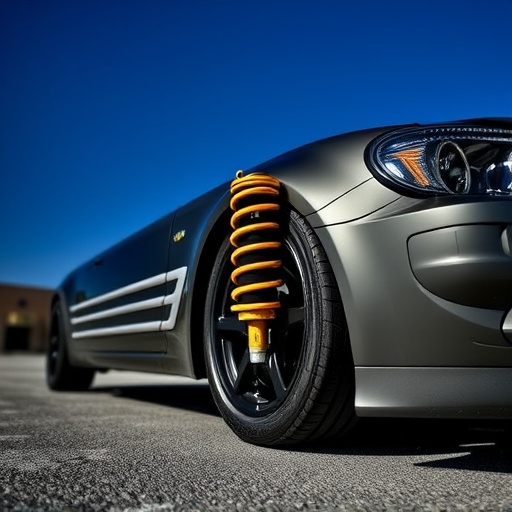
Noise emanating from brake caliper covers can be a result of several factors. One common source is worn or damaged suspension components, particularly the bushes and bearings that support the calipers. Over time, these parts can degrade, leading to rattling or squealing sounds when the brakes are applied. Another potential issue lies within the brake components themselves; worn piston pins, slides, or seals can also contribute to the noise, creating a metallic clanging or grinding during braking.
In some cases, improper installation of replacement caliper covers or related suspension kits might be at fault. Ensuring that all parts are correctly aligned and securely fastened is crucial in preventing unwanted noises. Moreover, environmental factors like road conditions and driving style can also influence the noise levels, with rough terrains or aggressive driving potentially exacerbating existing issues related to brake caliper covers.
Diagnostic Steps for Identifying the Problem
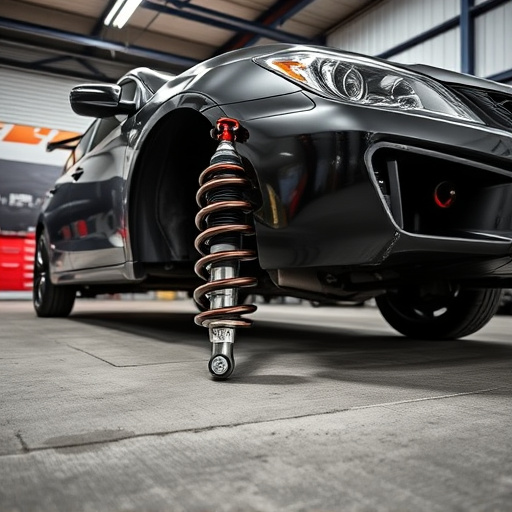
To identify the source of noise coming from your vehicle’s brake caliper covers, a systematic diagnostic approach is essential. Start by visually inspecting the brakes for any visible damage or wear to the calipers and pads. Look for signs of rust, corrosion, or loose components, as these could contribute to unusual noises. Check the brake fluid level and condition; low or contaminated fluid may cause caliper issues. Next, listen carefully while someone operates the brakes, trying to pinpoint the exact location of the noise—is it consistent during braking or does it vary?
Delve into more advanced diagnostic steps by using a scan tool to check for error codes in your vehicle’s computer system, which could provide clues about potential problems. Test each caliper individually by applying pressure to see if any anomalies arise, indicating a possible defect. Additionally, consider examining the vehicle’s air intake systems, exhaust systems, and coilover kits, as improper installations or leaks can sometimes cause unexpected noises that might be mistaken for brake issues.
Effective Solutions to Eliminate Unwanted Sounds
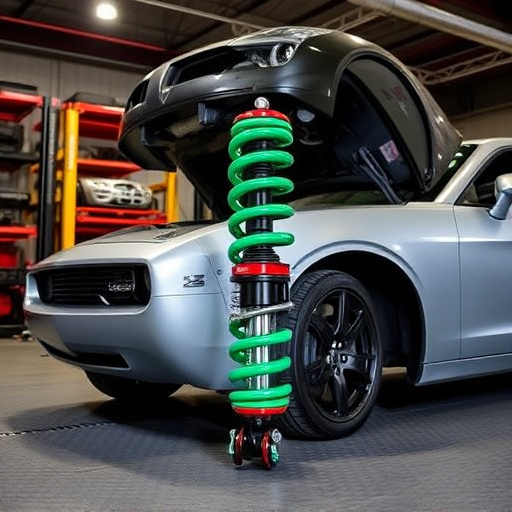
Unwanted noise from brake caliper covers can be a nuisance, but effective solutions are available to eliminate these sounds. One common issue is the metallic clanking or grinding associated with worn-out or damaged brake caliper pins and slides. Inspecting and replacing these components is often the first step in addressing noise problems. Using high-quality, well-fitted brake caliper covers can also significantly reduce vibrations and resulting noises.
Additionally, checking the condition of your exhaust mufflers and air intake systems is crucial. Deteriorated or improperly fitted mufflers and air intakes can amplify sound from brake calipers. Regular maintenance and ensuring these components are in optimal condition can contribute to a quieter driving experience. Furthermore, updating brake pads with high-performance options designed for reduced noise can help muffle the distinct sounds often associated with certain types of braking systems.
Identifying and addressing brake caliper cover noise issues is essential for maintaining safe and quiet vehicle operation. By understanding common noise sources, employing systematic diagnostic steps, and implementing effective solutions, you can eliminate unwanted sounds from your brake calipers. Regular maintenance and prompt action on any abnormal noises ensure optimal braking performance and enhance driving comfort. Remember, addressing these issues promptly is crucial for the longevity of your brake system and overall vehicle health.



